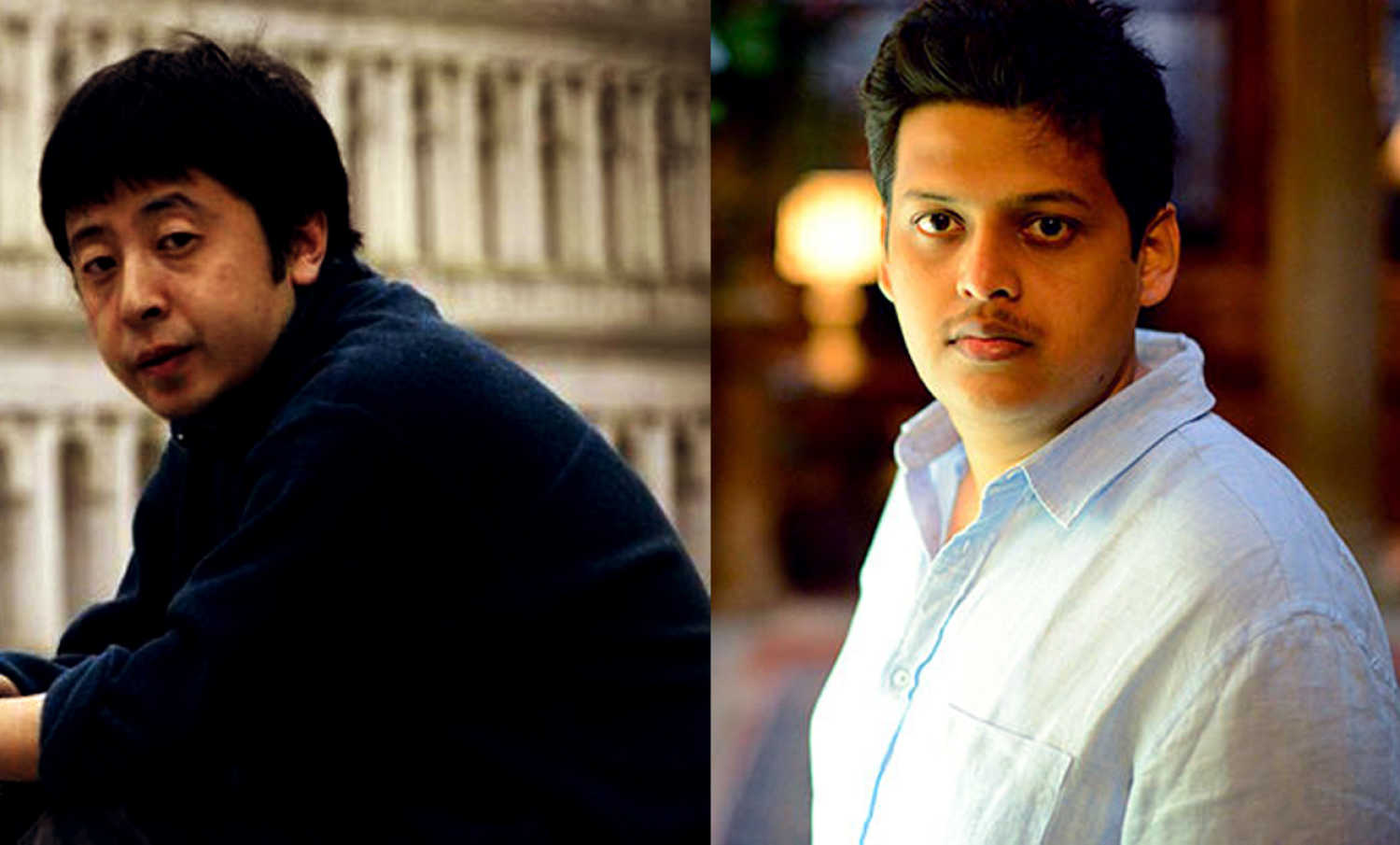Acclaimed Chinese filmmaker Jia Zhangke was in conversation with Chaitanya Tamhane, director of the National award-winning Marathi film Court, at the 18th Mumbai Film Festival.
Awara affected my cultural identity: Jia Zhangke
Mumbai - 21 Oct 2016 17:15 IST
Updated : 01 Apr 2017 13:58 IST


Sonal Pandya
Director Jia Zhangke, winner of the Excellence in Cinema International Award at this year's Mumbai Film Festival, is a regular on the international film festival scene. His films, Still Life (2006), A Touch Of Sin (2013), and Mountains May Depart (2015), have been screened at Cannes and Venice where he won the top prize, the Golden Lion, in 2006.
In the past two decades, Jia has worked his way up from student to short films, features and documentaries, all under the strict laws for filmmaking in China. At a special conversation held at the festival with writer-director Chaitanya Tamhane, Jia spoke to a rapt audience about the zen-like state of mind required when the environment for filmmaking becomes difficult.
The talk opened with a clip from Brazilian filmmaker Walter Salles's documentary, Jia Zhangke: A Guy From Fenyang (2014), in which Jia can be found humming ‘Awara Hoon’ from Raj Kapoor’s classic Awara (1951). The early black-and-white Indian film had quite an influence on the young Jia. China was experiencing the Cultural Revolution at the time and the film, along with its character of Raj and his thieving ways, left an imprint on Jia's mind. He recalled that it was one of the first foreign films to be screened in the country.
Jia went back to Awara when, in his first feature film Xiao Wu (1997), he featured a pickpocket as the protagonist. When asked about the influence of his surroundings on his work, Jia spoke of certain incidents from childhood that left a deep impact on him and which he carried over to his work. One particular instance, when a schoolmate’s mother passed away in an accident, got him thinking, “What is destiny in the life of somebody who is poor?”
In his own films, he said, he thinks about cinema as time, how it changes people through time. It makes us love, but it also makes us hate people. Jia began to express himself through poetry and short stories as a teenager at around 16. He never imagined then that he would go on to be a filmmaker.
But after watching Chen Kaige’s Yellow Earth (1984), Jia Zhangke began thinking of how everything in the film was familiar to him — the land, the people, the stories. The film made him want to become a director so he “could transform life to cinema”. After being turned down initially, Jia Zhangke joined the Beijing Film Academy in 1993. Since then he has been making astonishingly real films using non-professional actors and authentic locations and sounds.
Still, Jia told Tamhane (through last-minute translator Jordan Schiele, whose film Dog Days is also playing at the festival) that “film is a collaborative art” and stressed the need to find the right team. He still works with some of his classmates from the Beijing Film Academy.
The quiet yet confident filmmaker spoke strongly of his need to keep making films. He described it as “an illness”. When Tamhane asked him how he keeps making cinema despite the censorship woes in his own country, he said simply that he “keeps making more films”.
Jia also spoke of the censorship troubles that filmmakers in India and China face, stating that “filmmaking is the same anywhere”. Interestingly, he equated making a film with raising a child.
The trailblazing Chinese director also talked about how “a creator should never sacrifice their vision”. He instead talked about educating the censors. In his films, Jia allows his actors to speak in their own dialect, facing the censors who only wanted one national language. He argued about the importance of language to their identity. Since then, the laws have been relaxed to include other dialects as well.
Jia Zhangke also thanked the international festival audience for interest in his films (there are many in his own country who can’t watch his films) and said taking his films to festivals helps to break a sense of limitations by seeing how other filmmakers work. Tamhane asked him about the international audiences’ expectations, to which he replied that he resists expectations and only tries to communicates what he wants.
The conversation ended with Jia Zhangke addressing the issue of the future of Asian arthouse cinema. He stated that we, meaning filmmakers, will “always find a way”. Filmmakers have a need to express the disparity, violence and societal problems and they do so through their films. It will keep happening, despite the odds.
Jia Zhangke’s A Touch Of Sin (2013) and Unknown Pleasures (2002) are both being shown at the festival.

